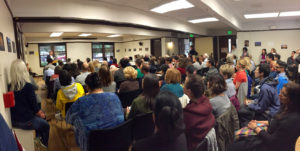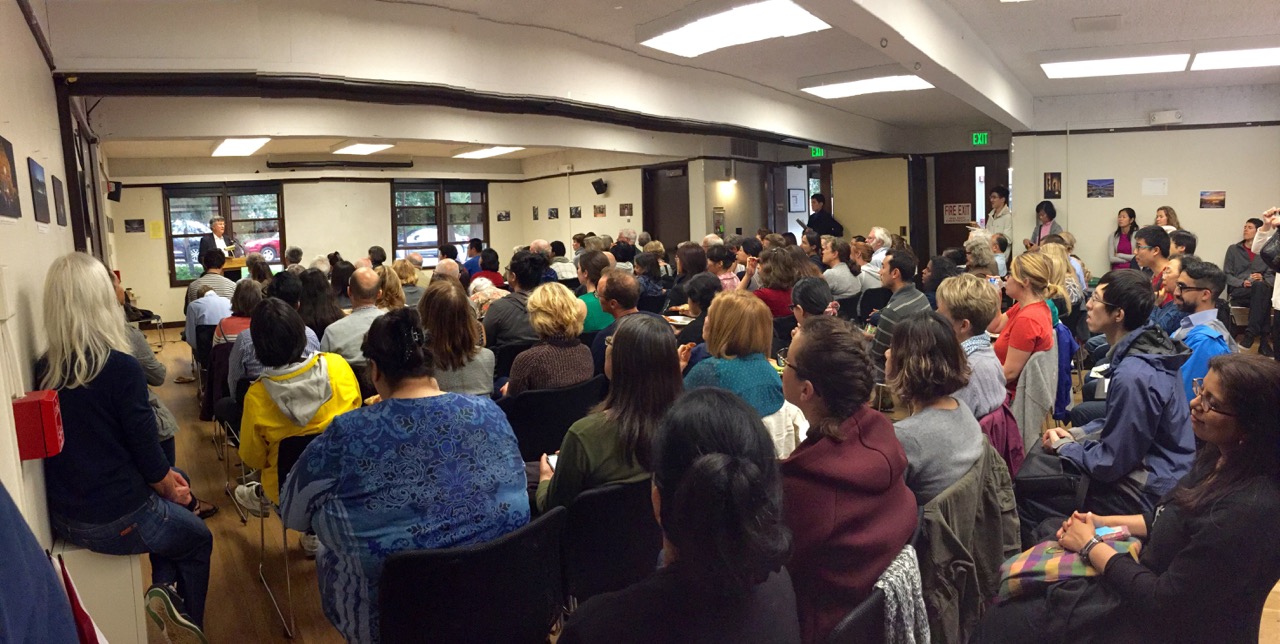David Kennedy, the Donald J. McLachlan Professor of History Emeritus at Stanford, gave a lecture last week on the history of the American presidency. Kennedy’s talk was featured as part of the Bechtel International Center’s International Discussion Series, entitled, “The American Election 2016: How Did We Get Here and Where Are We Going?”
Yoanna Gerwel Federici, program manager at the Bechtel International Center and part of the team organizing the International Discussion Series, said she hoped the talk would help connect Stanford with a larger community and emphasized the value in keeping a historical perspective.
“If you don’t learn history, the past and how we got to today, it’s hard to understand today or plan for the future,” Federici said.

Kennedy began by analyzing the increase in importance placed by the American people on the impact and importance of the president.
“[The president] is exactly one of the 536 elected officials in Washington D.C. … The Framers [of the Constitution] thought of the president as subordinate to the Congress, as the preacher of the Congress,” Kennedy said, calling the contrast between past and present views of the presidency a “huge asymmetry.”
Kennedy then discussed the development of the executive branch of government. He highlighted the roles of Woodrow Wilson, Franklin Delano Roosevelt and Lyndon Johnson in establishing the president as someone the American public could rely on for what he called “coherent, nationally scaled policies.”
Kennedy went on to explain how mass media, from newspapers to televised press conferences, became a way for the president to compel elected representatives in Congress to bend to the presidential will.
But what drew the crowd’s interest the most was Kennedy’s interpretation of the primary system under its flag of direct democracy.
“Like a lot of things, you’ve got to be careful what you wish for,” Kennedy said among chuckles from the audience. “The primary system has created a lot of mischief, and the current electoral cycle is Exhibit A that we have a little too much direct democracy.”
According to Kennedy, it’s become too easy to run for president.
“Anyone with guts or stamina or a checkbook… can hijack a party without any kind of vetting,” he said, classifying Donald Trump’s candidacy as an “absolutely vivid example” of this.
The end of the talk turned toward four years to the future, with Kennedy predicting the potential for an unprecedented three-party race.
Kennedy described a three-party race as more than a curious anomaly for a few reasons. If no party won the 270 electoral votes necessary to elect a president, the election would depend on the House of Representatives, where each state would have only one vote.
“Wyoming and California would have the same political weight,” Kennedy explained. “You can probably imagine, that’s a formula for not merely a constitutional crisis, but civil war.”
Other topics included a prediction of violence at polling places during the U.S. presidential election this November as a result of Trump’s recent delegitimization of the process.
Finishing his talk, Kennedy entertained a “dark thought,” as he called it, where in light of China’s success as a communistic society and the current difficulties of the American political system, our democracy could undergo serious change.
“We could be at the beginning of an era when we’re going to question some of the very fundamental promises of democracies that we thought were the highest of human achievements for the last two centuries,” Kennedy said.
Contact Edan Armas at edaarmas ‘at’ stanford.edu.
